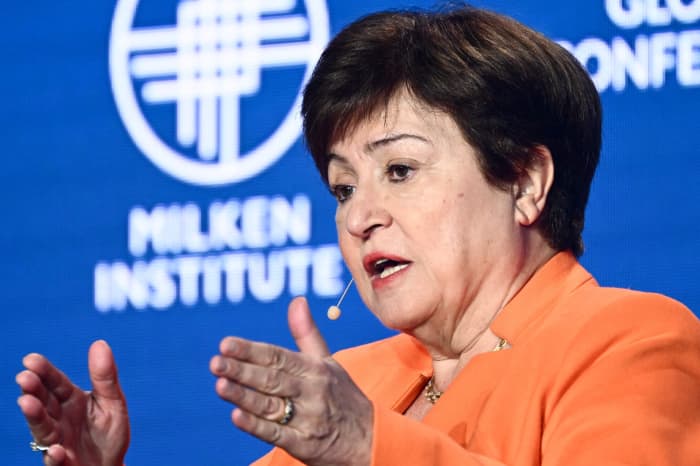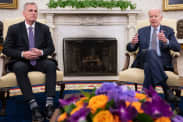“‘Don’t kiss your dollars goodbye just yet.’”
— Kristalina Georgieva, managing director, International Monetary FundDon’t count International Monetary Fund Managing Director Kristalina Georgieva among the naysayers expecting the U.S. currency to lose its luster due to “de-dollarization.”
In remarks at an economic forum in Doha Wednesday, she argued that the U.S. dollar was likely to retain its status, Reuters reported.
“We don’t expect a rapid shift in [dollar] reserves because the reason the dollar is a reserve currency is because of the strength of the U.S. economy and the depth of its capital markets,” she said.
A debate over de-dollarization — countries moving away from the dollar as a reserve and medium of exchange — has raged this year. The question is whether a meaningful shift away from the dollar is under way that would have implications for the U.S. or global economy.
See: Why Washington and Wall Street are worried about the ‘de-dollarization’ threat
Skeptics of de-dollarization contend that moves to price some commodity transactions in units other than the dollar pose little threat to the currency’s dominant role in the financial system, while the greenback’s share of global forex reserves has always tended to ebb and flow.
The ICE U.S. Dollar Index
DXY,
On a more immediately pressing matter, Georgieva played down the risk of a default by the U.S. government as the White House and congressional Republicans continue to negotiate over lifting the debt ceiling. Such showdowns are a somewhat regular occurrence in the U.S., she noted.
“History tells us that the U.S. would wrestle with this notion of default … but come the 11th hour it gets resolved and I have confidence we will see that play again,” Georgieva said.
The Treasury Department has warned the U.S. could find itself unable to pay its bills as early as June 1 — the so-called X-date — unless the debt ceiling is raised or otherwise addressed. The White House and congressional negotiators continue to talk and appeared to be nearing a deal as the week wound to a close.
See: Want to place a bet on a U.S. default? You may be able to cash in with the dollar.
Worries over the potential for default have roiled the market for short-term Treasury bills, with traders and investors shunning paper that would come due around the X-date.
A surge for tech stocks fueled by growing enthusiasm for artificial-intelligence applications overshadowed lingering debt-ceiling fears. The S&P 500
SPX,
Don’t miss: A debt-ceiling deal will spark a new worry: Who will buy the deluge of Treasury bills?







